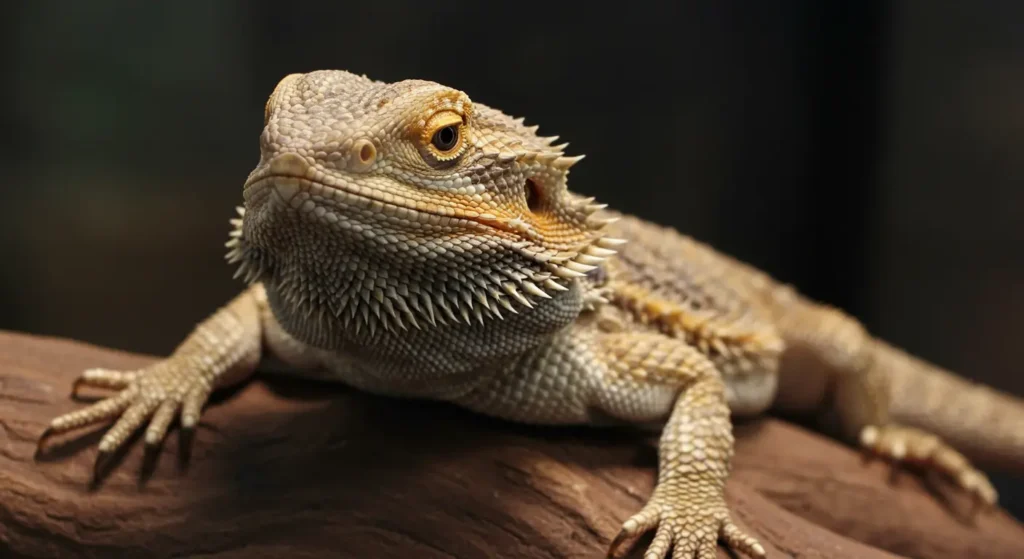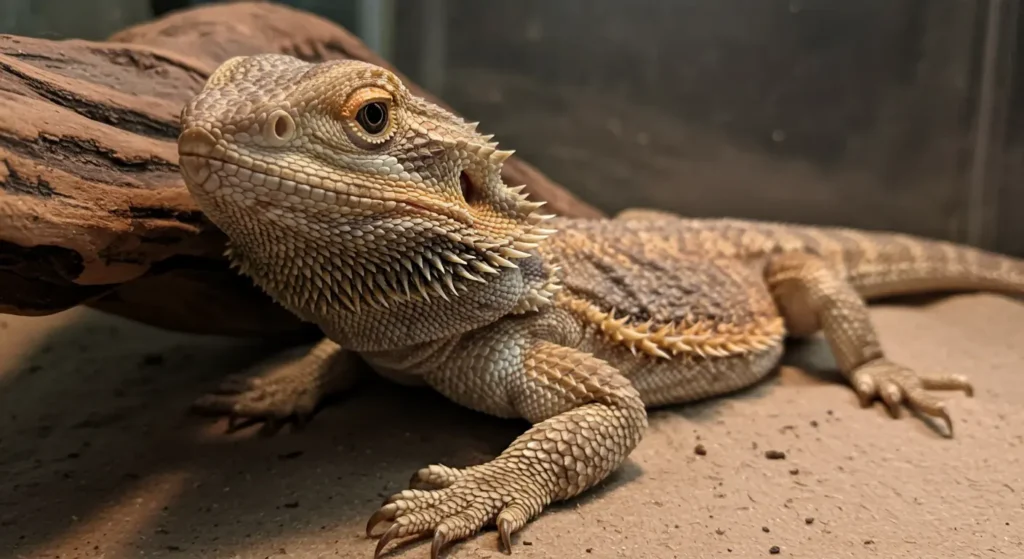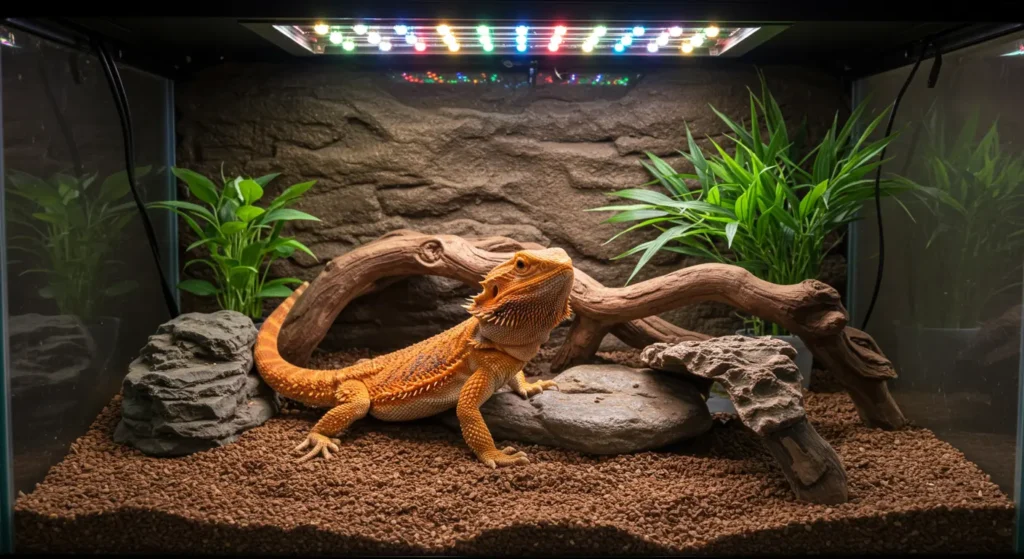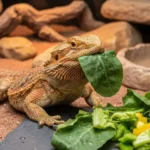Can bearded dragons eat pineapple? It’s a common question for many reptile owners, especially when enjoying a slice of this tropical fruit. As a responsible pet parent, knowing what your bearded dragon can safely eat is essential.
Not all fruits are safe, even if they seem healthy. That’s why it’s important to ask: can bearded dragons eat pineapple without problems?
In this post, you’ll find clear answers. We’ll cover the benefits, risks, and the right way to offer pineapple as a treat. Whether you’re new to beardies or just want to spice up their diet, this guide has you covered.
Can Bearded Dragons Eat Pineapple? Here’s What You Need to Know
Pineapple might seem like a harmless treat for your bearded dragon, but there are a few things you need to consider first. While the fruit is sweet and full of nutrients, not all its properties are ideal for reptile health.
Is Pineapple Safe for Bearded Dragons to Eat?
In small amounts, pineapple is generally safe for bearded dragons. It contains vitamins and minerals that can support their health. However, because it’s high in sugar and acidic content, it should only be offered occasionally.
Feeding pineapple too often can disrupt their calcium levels and digestive balance. So while it’s not toxic, it’s best treated as a rare treat.

How Often Can Bearded Dragons Have Pineapple?
Pineapple should be given no more than once every two to three weeks. This ensures your dragon enjoys the benefits without facing the risks of overconsumption.
Too much pineapple can lead to digestive upset and nutritional imbalance. Use it sparingly and rotate it with safer fruits like blueberries or papaya.
Fresh vs. Canned Pineapple — What’s the Difference?
Always choose fresh pineapple over canned. Canned pineapple often contains added sugars and preservatives that are harmful to bearded dragons.
Fresh pineapple, when properly peeled and chopped, offers more natural nutrients and fewer chemical additives. Avoid canned versions entirely to keep your pet safe.
Nutritional Value of Pineapple for Reptiles
Pineapple is rich in several nutrients, but not all are equally beneficial to reptiles. Understanding its nutritional makeup helps you make better feeding decisions.
Key Nutrients Found in Pineapple (Vitamins, Fiber, Sugar)
Pineapple contains vitamin C, vitamin B6, and dietary fiber. These support immune health, energy levels, and digestion. The fruit also offers some manganese and folate.
However, it’s also high in natural sugars. This makes it unsuitable as a daily food option for reptiles like bearded dragons.
How Pineapple Affects a Bearded Dragon’s Digestion
The fiber in pineapple can aid digestion in small quantities. It helps promote smoother bowel movements and supports gut health.
But too much fiber and acidity may lead to loose stool or dehydration. That’s why portion control is crucial when offering this fruit.
The Role of Sugar and Acidity in Reptile Diets
Reptiles, especially bearded dragons, are not built to handle large amounts of sugar or acid. These components can upset their internal balance.
Excess sugar contributes to obesity and metabolic issues. High acidity can irritate their stomach lining and affect hydration levels.
Does Pineapple Support or Harm Calcium Absorption?
Pineapple contains oxalates, which bind to calcium and may block its absorption. For bearded dragons, this can be risky, especially for their bone health.
Regular exposure to oxalates can lead to metabolic bone disease (MBD). That’s why pineapple should never replace calcium-rich foods in their diet.
Risks of Feeding Pineapple to Bearded Dragons
Although pineapple has nutritional value, it also comes with risks. Being aware of these helps you protect your pet’s long-term health.
Can Too Much Pineapple Cause Health Problems?
Yes, overfeeding pineapple can lead to several issues. These include digestive upset, diarrhea, and an increased risk of metabolic bone disease.
Too much sugar and acidity over time can weaken your bearded dragon’s immune system. Always treat pineapple as an occasional snack, not a staple.
Signs Your Bearded Dragon Didn’t Tolerate It Well
Watch for symptoms like lethargy, runny stool, or loss of appetite after feeding pineapple. These may indicate your dragon didn’t digest it well.
If symptoms persist, remove pineapple from their diet and consult a reptile vet. Every dragon is different—what works for one might not work for another.
High Sugar and Acid — What You Should Watch For
Pineapple’s high sugar content can lead to weight gain and insulin resistance. The acidity can irritate the digestive tract and lead to dehydration.
To avoid this, always serve small amounts and balance it with leafy greens and calcium-rich foods. This keeps your dragon’s diet well-rounded and safe.
Safe Feeding Tips: How to Offer Pineapple the Right Way
Feeding pineapple to your bearded dragon requires careful preparation and moderation. Doing it right ensures your pet enjoys the treat without negative health effects.
How to Prepare Pineapple for Your Bearded Dragon
Always start with fresh pineapple. Peel off the tough outer skin and remove any hard core parts. Cut the fruit into small, bite-sized pieces to prevent choking and make it easier to digest.
Avoid giving any canned pineapple or pineapple with added sugars. Rinse fresh pineapple if it seems too sticky or sugary.
Portion Sizes and Feeding Frequency
A small amount is best — think about one or two small cubes per feeding session. Offer pineapple no more than once every two to three weeks to avoid excess sugar intake.
This frequency helps keep your dragon’s diet balanced and reduces risks associated with overfeeding acidic fruits.
Combining Pineapple with Other Fruits and Greens
Pair pineapple with calcium-rich leafy greens like collard or mustard greens. This helps offset the fruit’s acidity and supports healthy calcium absorption.
Also, consider mixing pineapple with other safer fruits like blueberries or papaya for variety. Avoid serving pineapple alone too often.

Tips to Keep Your Bearded Dragon’s Diet Balanced
Focus on a diet primarily made up of leafy greens and live insects, which provide essential nutrients for your bearded dragon. Fruits like pineapple should be offered strictly as occasional treats to avoid excess sugar intake.
Regularly dust insects with calcium powder and ensure your pet has access to fresh water at all times. Maintaining this balanced diet helps prevent health problems such as metabolic bone disease. For comprehensive care guidelines, check out PetMD’s Bearded Dragon Care Sheet.
What Fruits Can Bearded Dragons Eat Besides Pineapple?
While pineapple can be a tasty treat, it’s not the only fruit your bearded dragon can enjoy. Knowing the safe options helps diversify their diet safely.
Best Occasional Fruits for Bearded Dragons
Besides pineapple, bearded dragons can enjoy other fruits in moderation. Blueberries, for example, are a favorite treat. To learn more about feeding blueberries safely, check out our detailed guide on Can Bearded Dragons Eat Blueberries? Discover the Juicy Truth.
Which Fruits to Avoid (and Why)
Avoid citrus fruits like oranges and lemons, as their high acidity can harm your pet’s digestive system. Grapes and avocado are also unsafe — grapes can cause digestive upset, and avocado is toxic to many reptiles.
Always research any new fruit before feeding to avoid health risks.
How to Rotate Fruits in Their Weekly Diet
Rotate fruits weekly to prevent overexposure to any one type. This helps your bearded dragon receive a wider range of nutrients without the risk of too much sugar or acid from a single fruit.
A sample rotation might include blueberries one week, papaya the next, and a small amount of pineapple every few weeks.
Comparing Pineapple with Other Common Fruit Treats
Compared to fruits like blueberries and papaya, pineapple is higher in sugar and acidity. While tasty, pineapple should be given less frequently and in smaller amounts.
Fruits with milder sugar content are generally safer for regular treats. Always balance fruit intake with leafy greens and protein-rich insects.
When asking, can bearded dragons eat pineapple, the answer is yes — but with important caveats. Pineapple can be a tasty and nutritious occasional treat thanks to its vitamins and fiber. However, its high sugar and acidity levels mean it should be offered sparingly and prepared carefully.
To keep your bearded dragon healthy, always prioritize a balanced diet rich in leafy greens, calcium sources, and live insects. Use pineapple as a special treat no more than once every few weeks, and never rely on it as a staple food.
By following these feeding tips and understanding the risks and benefits, you can safely introduce pineapple into your pet’s diet while supporting their long-term wellbeing.
Remember, a happy, healthy bearded dragon starts with smart nutrition choices — and a little pineapple treat every now and then can be part of that.
Conclusion
In summary, can bearded dragons eat pineapple? The answer is yes, but only in moderation. Pineapple offers some vitamins and fiber but also contains high sugar and acid levels that can pose health risks if overfed. By preparing it properly and offering it as an occasional treat alongside a balanced diet of leafy greens and insects, you can safely include pineapple in your bearded dragon’s menu.
Always monitor your pet’s response to new foods and prioritize calcium-rich options to support their overall health. With careful feeding and variety, your bearded dragon can enjoy a tasty tropical snack without compromising their well-being.






